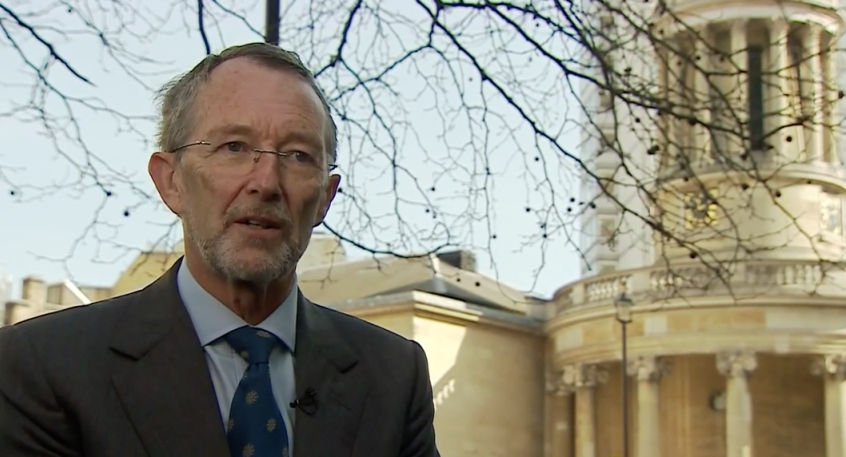A Christian magistrate who was sacked after giving media interviews expressing his views on gay adoption is suing the Lord Chief Justice for religious discrimination.
Richard Page, 71, was found to have been influenced by his personal religious beliefs and not the evidence in front of him when considering an application by a same-sex couple who wanted to adopt a child in Kent in July 2014.
The Lord Chancellor and Lord Chief Justice reprimanded him for 'serious misconduct' but Page went on to give several media interviews expanding on his view that homosexual activity is wrong. He was eventually sacked in March 2016 by then Justice Secretary Michael Gove and Lord Thomas who said his comments in the press suggested he was 'biased and prejudiced against single sex adopters'.

A few days later he was suspended from his role as a non-executive director of the Kent and Medway NHS and Social Care Partnership NHS Trust. This was not because of his religious views expressed in the media interviews but because he had failed to inform the Trust he was going to give interviews on national television.
The tribunal found that because Page deliberately sought media attention for his cause, he damaged the Trust's ability to serve the entire community after concern was expressed about his actions.
He was not suspended from the NHS Trust for his religious views, the tribunal ruled.
But now Page is suing both the Lord Chancellor and the Lord Chief Justice for religious discrimination at Croydon Employment Tribunal in south London.
'I hold the view that it is in the best interest of the child to have both a mother and a father, and I believe this to be a lawful and reasonable position for a family court judge to hold,' he said laying out his case.
'It could be that an adoption by a same sex couple or a single person is in the best interest of the child, but a report would need to satisfy me of that.
'I believe this is a reasonable and fair position, and not one of discrimination.'
Page said: 'While my colleagues are of course entitled to their views that one must be homophobic to disagree with same sex parenting, I am equally entitled to the view that a child needs a mother and a father, and that experimenting with a child is unethical and likely to add to an already unhappy life.
'There is a subtle difference between believing that a child should have a mother and a father, and being prejudiced to same sex couples. Sadly I was portrayed as homophobic and I refute this.'
The case continues.













